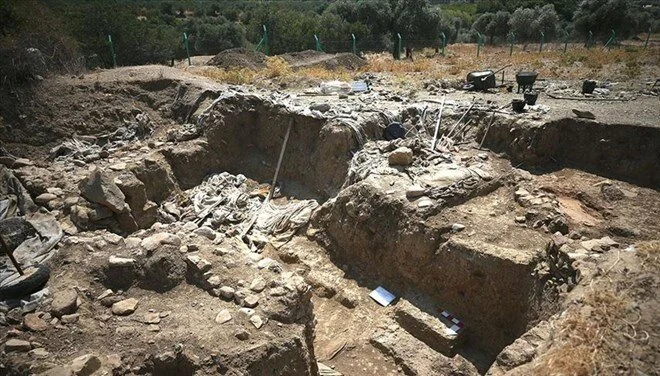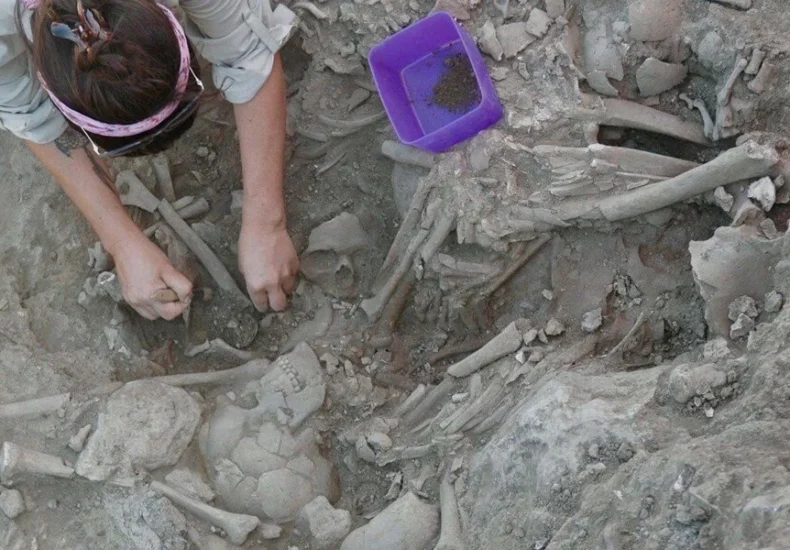
8,800-Year-Old Farming Houses Unearthed on Gökçeada: A First for the Aegean Islands
Archaeologists on Türkiye’s westernmost island, Gökçeada (ancient Imbros), have uncovered a discovery that rewrites Aegean prehistory: the earliest farming architecture ever found on any of the Aegean Islands. Excavations at the Uğurlu-Zeytinlik Mound revealed five domestic structures dating back 8,800 years, placing the site alongside Crete’s Knossos as the only known Neolithic settlements of the

Gökçeada: Home to the Earliest Agricultural Village in the Aegean Islands
Archaeological excavations on Türkiye’s Gökçeada (Imbros) have revealed the earliest known agricultural and livestock-based village settlement among the Aegean Islands. The Uğurlu-Zeytinlik mound, located on the island’s western coast, has been under systematic excavation for 15 years under the direction of Prof. Dr. Burçin Erdoğu from Akdeniz University, with the support of the Turkish Ministry

“Early Anatolian Gene” Discovered in Girmeler Mound in Western Türkiye
A groundbreaking discovery has been made during archaeological excavations at the Girmeler Mound Settlement in the Seydikemer district of Muğla. Ancient DNA analysis conducted on human skeletons unearthed at the site has revealed a genetic heritage referred to as the “early Anatolian gene.” This finding has the potential to fundamentally alter existing knowledge about the

Agriculture and animal husbandry have been practiced on Gökçeada, the world’s first Cittaslow island, for 8,800 years
Archaeologists have discovered evidence indicating that agriculture and animal husbandry were practiced 8,800 years ago on Gökçeada, the world’s first Cittaslow island. Archaeologists researching the food economy at Uğurlu-Zeytinlik Mound, located on Gökçeada, Türkiye’s largest island, have made significant findings. The excavations have been ongoing since 2009 under the leadership of Prof. Dr. Burçin Erdoğu
